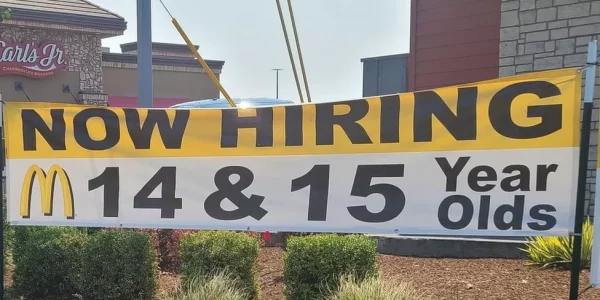Last summer Hyundai faced charges of employing children in its factories in Alabama. They cleaned up their act, but Labor Secretary Marty Walsh just got a letter from a group of legislators claiming that they’re back to their old tricks.
“Clearly, there is a systemic effort within the Hyundai supply chain to recruit child labor from abroad,” the letter ran, “undermining workers in other parts of the U.S. auto industry. And it must be addressed immediately.” The juxtaposition of child labor with fear of losing jobs to these tykes seems a bit strange, but we see where they’re going.
“Many of these children are immigrants recruited from Central America, working under fake names in dangerous conditions in manufacturing plants, some driving forklifts and operating welding equipment, and receiving serious workplace injuries,” the letter’s authors wrote. “According to reports, children are actively recruited from Central America and employed through third-party staffing agencies in an attempt to cover up these disturbing activities. According to reports, when adult workers in the plants tried to raise concerns about children working there, they were ignored. This is shocking, disturbing and has no place in the U.S.”
Reuters confirmed these claims.
Not just Hyundai
Reuters claimed that a network of staffing agencies across Alabama seems to be the driving force behind the recruitment and placement of children in manufacturing.
It’s not just manufacturing, either. Restaurants are hiring 14 and 15 year olds. Meatpacking plants in Nebraska and Minnesota, arguably dangerous working environments, are hiring young teens.
However, there has been talk of relaxing child labor laws in other states in response to the nationwide labor shortage that has followed the pandemic. Wisconsin and Ohio are extending the hours kids under 16 can work, allowing them to be on the job till 9:00 or 9:30 at night — 11:00 p.m. on weekends. Ohio is releasing employers from liability if kids are hurt or killed on the job.
The Department of Labor has reported that child labor law violations were up by more than a third in 2022. Is the solution to dilute the protection those laws offer kids?
The labor shortage is real, and it’s a real problem. There are many different opinions on the causes of the shortage. But returning to the barbaric practices of a century ago — that’s not the solution.
